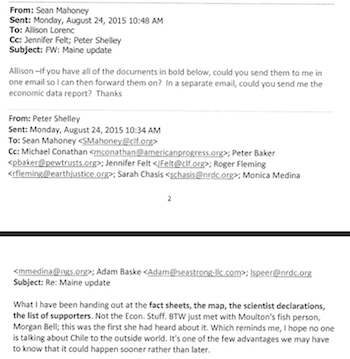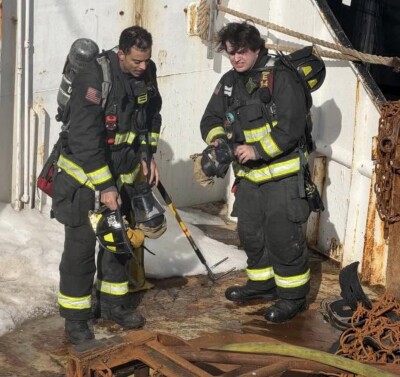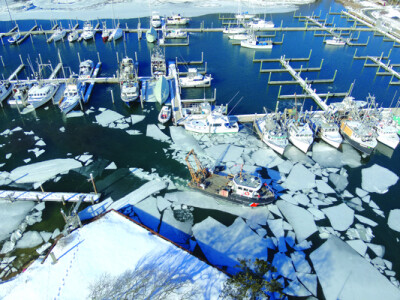Once upon a time, fishermen and environmentalists butted heads, pretty much all the time. Then for the most part, both sides slowly realized they had some things in common. We all want clean water (and plenty of it), preserved fish habitats, better fishing gear, more efficient engines, and the list goes on.
Emails from Conservation Law Foundation leaders were made public last week.We are now in an era in which the environmental movement and the fishing industry often work well together to achieve common goals. But there are some groups who have little interest in collaboration, or indeed even hearing what the other side has to say.
Last week, the fishing industry watchdog Saving Seafood made public what they say are the results of a Freedom of Information Act request to Maine’s governor’s office that showed the New England-based Conservation Law Foundation was working behind the scenes (including attempts to reach out to some Maine state officials) in the hopes of securing an East Coast marine monument designation through the Antiquities Act, which does not require democratic review. The emails indicated that the group hoped President Obama could announce the monument plan at the Our Ocean Conference in Valparaiso, Chile, (taking place this week) and that they hoped to be well under way in the process toward that designation before any potential opposition was aware of it enough “to fight it, to organize against it,” said CLF’s Interim President Peter Shelley, according to Environmental and Energy Publishing.
The email discussion took place in late August, shortly before the story broke in the mainstream press and NOAA agreed to hold a public meeting in response to industry angst over the potential designation. At the meeting, industry representatives made the point that designation of this monument will do nothing that fishery managers aren’t already doing with longstanding closures. But a unilateral, permanent closure of offshore waters has the potential to drive another wedge between environmental groups and the fishing industry. We don’t need more wedges; we need more work together.
In the emails made public, I noticed that the Conservation Law Foundation’s Shelley and Executive Vice President Sean Mahoney publicized fact sheets, a map and a list of supporters for the monument, but explicitly sought to keep economic data out of these communications.
Why did the CLF want to keep economic data separate from their conversations with prospective political supporters? Is it because there’s no economic justification for this monument? Or perhaps it’s because there’s an economic justification to avoid the designation. Shelley responded to some of my questions via email, saying that "there is a great deal of evidence suggesting that permanent protection benefits the local economy."
If that's the case, then I imagine the evidence would be well worth sharing. However, it seems to me that a permanent area closure is at the very least short-sighted, given the dramatic shifts in climate and species we have seen in recent years. The best advantage we have now to effectively manage fisheries and coastal economies is flexibility and the ability to respond quickly to these sudden and sometimes unpredictable changes. Permanent ocean closures seem about as effective as eliminating hurricane forecasts for the Gulf of Mexico simply because they haven't had a big storm there for several years. The weather, like fish populations, doesn't make permanent shifts.
Regardless of the economic or climatic data, the bottom line is that the closure of this area in perpetuity strips us of our ability as citizens to manage the area as a resource in the future.
Americans are sick and tired of petty political bickering. It is time to work together. It is time to leave the extremists on the fringes and make way for the majority of us in the middle to have an intelligent, respectful conversation. As stakeholders, it’s our job to demand that of everyone who steps into the fray, whether they speak for NGOs or for the fishing industry.







